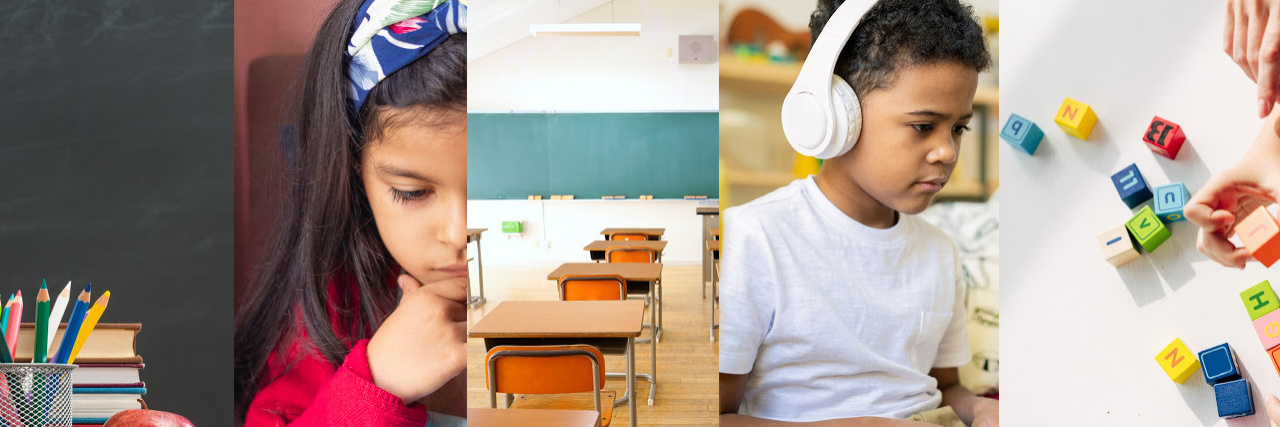Beginning in March 2020, distance learning became the dominant mode of school instruction across much of the country. As we look to fall 2020, health data makes it extremely likely that our youth will continue to access distance either full-time or part-time for the coming year. Distance learning has been a “fit” for some of our children, but if your child has struggled with distance learning, here are some tips to help you manage distance learning special education.
1. Create and maintain a routine.
In the early days of stay-at-home orders and school shutdowns, you may have felt unmoored. While this is completely understandable, you should try your best to find a routine for the new school year. It does not (and probably should not!) look like those multi-colored graphics that were flying around social media in March, but you should identify some key non-negotiables that you can commit to daily.
For most families, you should include meals, any synchronous (live) learning sessions, and any parental commitments that aren’t flexible, like department or staff meetings. Distance learning special education does not mean every minute of your day needs to be scheduled, but it should have some regularity to it.
2. Manage kids’ sensory needs.
Once you have some time slots anchoring your day, allow for sensory breaks. These will vary depending on your child’s needs and abilities — and the weather — but can include walks around the block, “boot camp” style sit-ups and push-ups, water play in the bath or with the hose, or yoga and/or meditation. Even just time with a fidget or on a swing or sitting on a sensory cushion can be a “reset” for your child. Any or all of this can also be part of the PE component of your distance learning special education plan.
3. Focus on communication.
Regardless of the level of your child’s verbal skills, this is the number one area of concern parents express to me. More verbal kids may miss context clues, misinterpret peer interactions and engage in perseveration. Less verbal kids (like my nonverbal, AAC user) may need to be constantly nudged to use their device, their signs, their PECS, and/or their words. Literally any and every moment of the day can be used to support and improve communication. And communication should be foundational to distance learning special education.
4. Harness what your child is learning.
You may have spent hours working with your team to craft “life skills” goals for your child, but now life skills are front and center. Play to your child’s strengths — and then stretch a little. Food lover? Work on sandwich assembly, or boiling pasta, or for the more advanced, that ubiquitous sourdough loaf. An organizer? Instead of lining up cars or dinosaurs, work on placing dishes into the cabinets, or sorting laundry out of the dryer. Car enthusiast? Gas stations are relatively empty still — practice filling the gas tank. Car washing and tire changing are other great life skills to teach and practice.
5. No one is behind.
The idea that a student — regardless of disabilities — is falling “behind” is a concern you should spend less time worrying about — especially now. The idea that there is some sort of starting line or finish line for learning is part of what has landed our educational system in the quagmire of standardized tests, multiple GPA calculations and class rankings.
Depending on your child’s disabilities, you may have already recalibrated your expectations against these conventional benchmarks, but chances are you have an IEP full of somewhat impractical goals. Now is the time to rethink these goals with a philosophy that less is more, and an underlying expectation that learning is a lifelong pursuit, and has not ever been confined to school walls or academic calendars.
6. Practice self-care — and self-compassion.
Parenting during a pandemic has turned out to be a round-the-clock sport none of us tried out for, but yet we were still named captain. You have likely never spent this much time with your non-infant children, unless you were already homeschooling — but even then, they would probably have had homeschool meetups and other outside-the-home social engagements.
Your kids are taking in everything you are putting out into the universe. And while health concerns, economic struggles and mental health challenges are real — and should not be glossed over — everything else should be taken with a grain of salt. Take grocery store lines, mask-wearing, and yes, distance learning, in stride, and your kids will start to as well. Depending on their age, they will either have fuzzy-to-nonexistent memories of this time period, or they will remember how your home felt more than any particular actions.
7. Give your entire family a break.
Yes, you can take a day off from distance learning special education. Therapeutic breaks — from either medical or school services — can feel scary, but they are beneficial to reduce expectations and recharge both your child and you. And because you will not have the day-to-day risks associated with classroom contacts and school facilities, perhaps your family will choose to take your home bubble to a new location for a safe vacation.


